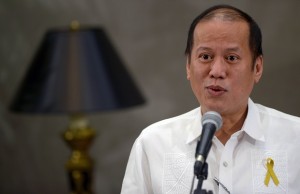Aquino ‘vulnerable’ to impeachment—ex-nat’l treasurer
MANILA, Philippines – Did President Benigno Aquino III commit an impeachable offense by implementing the Disbursement Acceleration Program (DAP)?
Former National Treasurer Leoner Briones said on Tuesday the President has become “vulnerable” to impeachment after the Supreme Court declared as unconstitutional key practices under the DAP.
“He is vulnerable to an impeachment complaint,” she told the Philippine Daily Inquirer in a phone interview.
Briones, who heads the budget watchdog Social Watch Philippines, said she and her group were not surprised with the high court’s decision.
“There’s no other way but to declare it as unconstitutional because it is clearly unconstitutional. It’s a victory for us in Social Watch because we have been campaigning against the abuse of savings since 2006,” she said. “The question now is: who is accountable and who should be penalized?”
Article continues after this advertisementGroups seeking to nail the President over DAP would have to consider a key document previously mentioned by Budget Secretary Florencio Abad while trying to defend the controversial budget impounding system.
Article continues after this advertisementBriones said she was not sure if Abad was able to furnish the high tribunal a copy of the President’s “written instruction” for the implementation of DAP.
Briones said the document would indicate that Abad was not acting on his own, but was instead following “instructions” from the President.
She recalled that Aquino had issued public pronouncements defending the Department of Budget and Management’s move to accelerate spending through DAP.
In October 2013, the President lamented before foreign correspondents that the DAP was being “unjustly and oddly vilified in the media.”
Back then, he sought to distance the DAP from the graft-ridden Priority Development Assistance Fund, saying the “the only thing one could remotely relate to PDAF were those projects undertaken through consultation with our legislators.”
As in the PDAF practice before, DAP allowed legislators to receive additional lump-sum appropriations coming from “savings” pooled by the DBM.
The DBM did so on the strength of National Budget Circular No. 541, which allowed Abad’s agency to collect “unobligated allotments of agencies with low levels of obligations as of June 20, 2012, both for continuing and current allotments.”
In case Abad acted alone, Briones said it would have to be determined whether the President was “responsible for the actions of his Cabinet members.”
“To me personally, I would not expect the President to know the constitutionality of every item in the budget. He could only be acting on the advice of his Cabinet members or advisers,” she said.
But with the budget secretary implementing the DAP and the President publicly defending the mechanism, Briones said “either Abad or the President or both” could be made accountable now that the practice had been declared unconstitutional.
When sought to comment on the high tribunal’s decision, Abad said, “I will refrain from making any comments until I see the full text of the SC decision.”
Malacañang had the same reaction: “We will defer comment until we have read the full text of the decision.”
RELATED STORIES
SC declares parts of DAP unconstitutional
